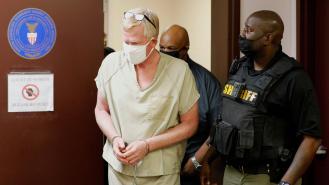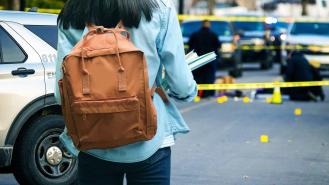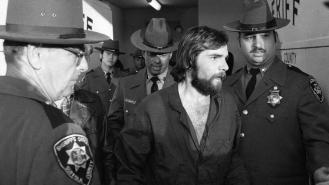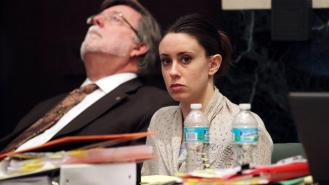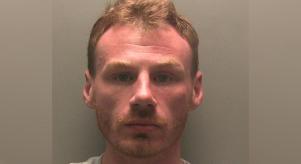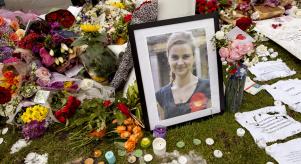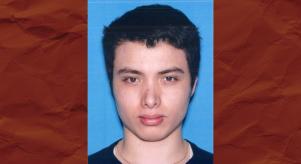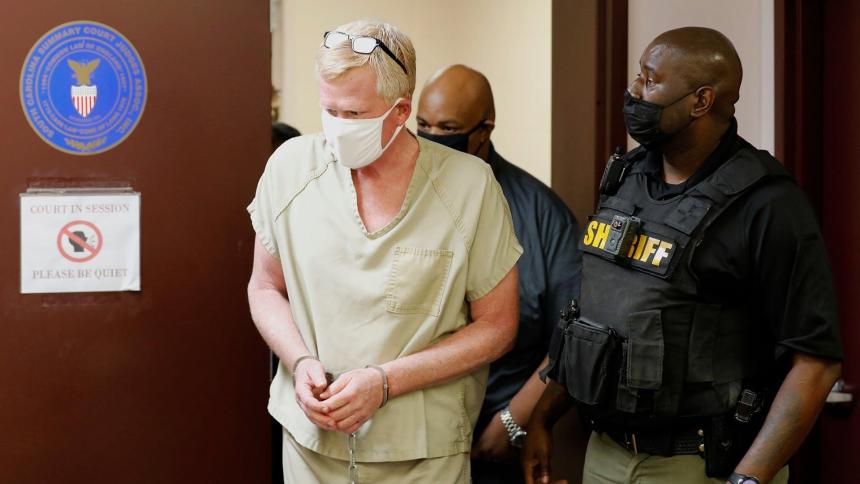
The trial of Alex Murdaugh: Convicted of the 'gruesome' murders of his wife and son
For almost a century, the Murdaugh family stood as prominent and powerful figures in the Lowcountry region of South Carolina. The family included three generations of solicitors in the 14th Judicial District, and they ran their own law firm which was founded in 1910. They were so influential in the area that it became known as ‘Murdaugh County’.
The legal saga began at around 2am on 24th February 2019, when 19-year-old Paul Terry Murdaugh crashed his family boat into the Archers Creek Bridge in Beaufort, South Carolina. He had been carrying five passengers, including 19-year-old Mallory Beach. Before the crash, Paul and his friends had attended an oyster roast and spent much of the night drinking alcohol.
Paul was intoxicated when the boat slammed into the bridge, sending Mallory crashing into the water. Over the next eight days, searchers trawled the waters for Mallory. They finally found her on 3rd March. She had died from blunt force trauma and drowning. After an investigation and much legal back and forth, Paul was charged with three felony counts, including boating under the influence and boating under the influence causing death on 18th April.
Paul pleaded not guilty and was subsequently bailed to return to the family’s home. His father, Alex Murdaugh, was the fourth generation of the powerful South Carolina dynasty and worked as a lawyer. Behind his public front, Alex had been struggling with an opioid addiction. At one stage, he was spending more than $50,000 a week. After Christmas of 2018, he entered treatment for drug abuse.
While Alex was one of the state’s most successful attorneys, he was simultaneously stealing millions from those closest to him, including his brother, and several of his clients.
At 10:06pm on 7th June 2021, a phone call came into the police in Islandton, South Carolina. It was from Alex, who claimed that he had returned home to find Paul and Maggie dead near the dog kennels outside. Paul had been shot with a shotgun while Maggie had been shot with an assault-style rifle.
An investigation was launched and first off, detectives theorised that Paul had been targeted because of the earlier incident and that Maggie was an innocent bystander. According to members of the family, Paul had received threats from strangers, but they never believed that the threats were valid. Alex himself suggested this theory when investigators arrived at the home following the 911 call. He said: ‘This is a long story. My son was in a boat wreck months back. He's been getting threats. Most of it has been benign stuff we didn't take serious. I know that's what it is.’
The investigation into the grisly murder was already in full swing when Alex phoned the police on 4th September 2021 to report he had been shot in the head on a rural road in Hampton County. He had pulled over at the side of the road after a flat tyre when a pickup truck passed by, turned around and then opened fire; the bullet grazed Alex’s head. In the wake of the shooting, Alex said that he was resigning from the family’s law firm. However, it was soon revealed that Alex had actually been forced to leave for misappropriating company funds.
An investigation into the shooting determined that Alex had arranged for a hit man named Curtis Edward Smith to shoot him so that his other son, Buster, could collect his life insurance policy. Alex turned himself in to law enforcement after being charged with conspiracy to commit insurance fraud.
He was granted a bond and was ordered to enter a drug rehabilitation centre. Upon his release, he was arrested and charged with two felony counts of obtaining property by false pretences. This charge stemmed from the 2018 death of the Murdaugh family’s housekeeper, Gloria Satterfield, who had fallen at the home. After her death, Alex had stolen millions in settlements with his insurers. The money should have gone to Gloria’s family, but instead, it went to Alex.
The investigation continued, and on 19th November 2021, Alex was indicted on 27 counts, including breach of trust with fraudulent intent, obtaining signature or property by false pretences, money laundering, computer crimes and forgery. The following month, he was charged with nine counts of breach of trust with fraudulent intent, seven counts of computer crimes, four counts of money laundering and one count of forgery. In January 2022, he was indicted on 23 new charges, including breach of trust with fraudulent intent and computer crimes. He stood accused of stealing around $8.5 million over the past 11 years.
It wasn’t until July 2022 that Alex Murdaugh was charged with the murder of Maggie and Paul. Investigators announced that a video found on Paul’s mobile phone had contradicted Alex’s version of events from the night of the murders and placed him at the crime scene around the time the murders occurred.
He pleaded not guilty to the charges and was ordered to stand trial. By 25th January 2023, a 12-person jury was selected and the trial was ready to begin. By now, further charges had been filed against Alex including tax evasion, money laundering, and computer crimes.
Prosecutor Creighton Waters described, during his opening statements, a series of revelations as a puzzle piece. He said that when all these pieces are put together, they showed that Alex had killed his wife and youngest son. ‘You’re going to see what he did to Maggie and Paul. It’s going to be gruesome. There’s no other way around it.’
The state had no direct evidence that connected Alex to the double murder. There was no DNA evidence, no confession, nor any eyewitness testimony. They argued, however, that they had enough circumstantial evidence to build a strong case against Alex.
It was their theory that Alex had killed Maggie and Paul because of recent inquiries into his finances that were threatening to unearth a plethora of financial crimes. Alex was facing around 100 charges relating to other crimes, including money laundering, stealing millions from clients and the family law firm, tax evasion, and the incident involving the hit man.
Prosecutor Waters said that a blue raincoat belonging to Alex was discovered in his parents’ home covered in gunshot residue, GPS data placed him at the crime scene just before the murders and investigators found 300 Blackout rifle ammunition and 12-gauge shotgun shells in the family’s gun room, believed to have come from the murder weapons.
An investigation had uncovered that Alex had lied about his whereabouts in the lead-up to the shootings. He claimed that he was visiting his mother who lived an hour away, and initially, he claimed he had not been near the dog kennels that night before finding Maggie and Paul. However, on a video on Paul’s phone from 8:45pm, Alex could be heard speaking to Maggie and Paul about a dog running near the kennels with a chicken in its mouth.
Defence attorney Dick Harpootlian countered the prosecution’s opening statements. He said that his client was a loving husband and father, and was incapable of killing his wife and son. He detailed the brutal nature of the murders, revealing that Paul’s head exploded ‘like a watermelon’. He said that Paul was killed first, and Maggie was shot next as she attempted to flee from the scene.
He accused state investigators of spending 13 months trying to prove that Alex was the killer instead of pursuing an objective investigation into finding the real killer. He stated: ‘They decided that night: He did it. They’ve been pounding that square peg in that round hole.’
He continued, telling the jury that not a single person would testify about any issues within the marriage between Alex and Maggie and that all text messages and emails indicated that they had a loving relationship. He said that the only reason Alex had lied regarding his whereabouts on the night of the murder was because he was in a state of shock, having just discovered the bodies of his wife and youngest son.
According to the defence, upon making the gruesome discovery, Alex returned home to retrieve a 12-gauge shotgun for his own protection. Defence attorney Harpootlian said that the fact he attempted to load it with 16-gauge rounds was an indication of his trauma. He stated: ‘You can hear on the 911 tape, he is hysterical.’
Among the first witnesses to testify were the first officers who responded to the scene that night. Under cross-examination, defence attorney Harpootlian was focused on establishing that they had made critical blunders that night, which included walking around the crime scene, marking shell casings and even stepping into the feed room where Paul was shot. He suggested that bloody footprints at the scene could have been left by the officers.
He noted that the officers had noticed multiple sets of tyre impressions on the wet grass that night around the crime scene but they didn’t document them. ‘Tyre tracks were obliterated by your men, is that correct?’ defence attorney Harpootlian asked Sgt. Daniel Greene. He responded: ‘That’s possible.’ The prosecution countered this by noting that the first responders had taken care to secure the crime scene.
The first responding officers testified that when they arrived at the home, Alex appeared to have no blood on his clothing despite the fact the murders were committed at a very close range. Alex had told the officers he checked his son’s pulse but quickly realised that he was obviously deceased. Prosecutor John Meadors asked Detective Laura Ruthland whether she saw any blood on Alex’s hands, arms, shirt, shorts or shoes. She said no.
State Law Enforcement Division Special Agent Melinda Worley testified next. She told the jury that they collected shotgun pellets, DNA swabs from the scene, clothes and fingernail clippings from the autopsies and other items. Under cross-examination, she revealed that a bloody footprint found near Paul’s body had come from a deputy. Defence attorney Harpootlian asked: ‘Is that the preservation of the scene that your standards require?’ She replied: ‘Not exactly, no.’
The defence attorney then presented a diagram that showed the angles of the shots fired at Maggie and Paul. Special Agent Worley pointed out that there was a significant disparity between the directions the shots at each victim came from. She said that this could occur when a shooter is moving or when there are two shooters.
The prosecution told the jury that a .12-gauge shotgun and an AR-style rifle were recovered from the family’s home. They were the same models as the weapons that had killed Maggie and Paul. The defence repeatedly objected to the guns being entered into evidence and claimed that there was no evidence connecting the weapons to the murders. The objection was overruled after Prosecutor Waters argued that the guns were a key piece of evidence to the case.
State Law Enforcement Division Agent Jeff Croft next told the courtroom that he found weathered casings identical to the rounds fired from the weapon that killed Maggie on the other side of the property. He stated: ‘I saw spent casings that appeared to be weathered like it had been there for some time.’ SLED ballistics expert Paul Greer testified that the rifle shells had only been cycled through the same weapon’s chamber, not necessarily fired from the same gun.
Agent Croft then testified about an interview he had with Alex the day after the murders. Alex was emotional, and as he broke down into sobs, he uttered something that was disputed between the prosecution and the defence. According to the prosecution, when speaking about Paul, Alex said: ‘I did him so bad.’ According to the defence, he had said: ‘They did him so bad.’
Phone records were presented next. SLED Lt. Britt Dove revealed that phone calls from Maggie’s phone to Alex on the night of the murders had been deleted from his phone. These calls had come at 9:04pm, 9:06pm, 9:06pm, 9:45pm, and 10:03pm. According to the prosecution, Maggie was already dead at this stage.
In the second week of the trial, prosecutors asked the judge to allow them to call the son of the Murdaugh family’s housekeeper to testify. Gloria Sattefield had died in a fall at the Murdaugh home in 2018 and Alex promised her family he would take care of them. He suggested they hire his friend to be the executor of Gloria’s estate, but instead of taking care of her family, he stole millions in settlements with his insurers. He received more than $4 million. The judge agreed to the request, and Gloria’s son, Tony, said that the family had never received a single cent from Alex.
The prosecution said that this testimony bolstered their case, that it proved Alex was in dire need of money and willing to do anything to get it. They argued that Alex had killed Maggie and Paul to portray himself as the victim of an ‘unspeakable crime’ that would buy him more time to cover up his financial crimes.
Gunshot residue evidence was presented by SLED analyst Megan Fletcher, who said that she found copious amounts of the residue on Alex’s raincoat, which he stashed away at his parents’ home in the days following the murder. However, she confirmed that she couldn’t say how or when the residue particles got on the jacket’s interior.
After 18 days of testimony and 61 prosecution witnesses, the prosecution rested their case. The defence called on Alex’s other son, Buster, who said that when he listened to the recording of his father, he was sure he said: ‘They did him so bad,’ referring to Paul’s killer. He also said that the family had known about Alex’s opioid addiction but believed that he had kicked it after treatment in 2018. He was asked whether there was any violence in the family, and he denied that there was.
The defence also called on mechanical engineer, Mike Sutton, who shared his belief that based on the stray bullets at the crime scene, the shooter must have been no taller than 5-foot-4; Alex was 6-foot-4. He stated: ‘It’s very unlikely that he fired that shot.’ Prosecutor David Fernandez countered this and suggested that the shooter could have been kneeling down and holding the weapon low.
Alex Murdaugh testified on his own behalf and admitted to fooling, tricking and swindling people for years. He confessed to embezzling millions of dollars over the years but denied that he had killed Maggie and Paul. He said that the reason he lied about not being near the dog kennels on the night of the murder was because his drug addiction had made him paranoid and he knew that he would become the prime suspect if he admitted to being at the crime scene just minutes before the murders.
After a six-week trial, the jury was sent off to deliberate. They returned with a verdict less than three hours later. Alex Murdaugh was found guilty of the murders of Maggie and Paul Murdaugh. They also convicted him of two counts of possession of a weapon during a violent crime. He was subsequently sentenced to two consecutive life terms.
